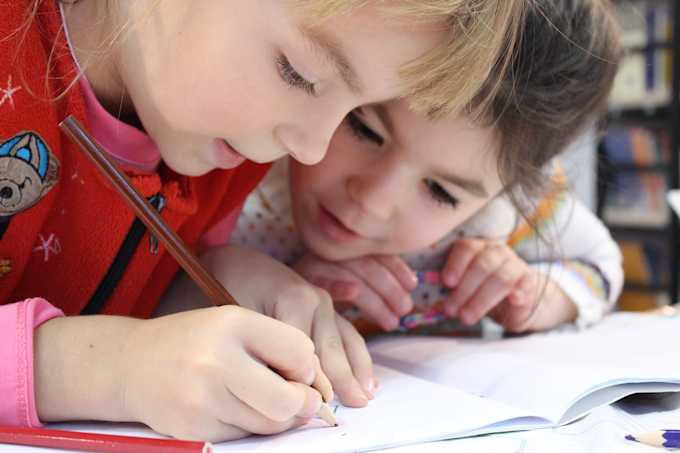The following guide contains terms that are frequently used in special education and the IEP process.
Accommodation
Accommodations are changes to the school curriculum that compensate for a student’s difficulties without modifying the general curriculum. Accommodations allow the student to do the same work, read the same material, and take the same exams as their peers.
Assessment
An assessment is a method by which a child’s characteristics, strengths, and weaknesses are obtained and analyzed. Assessments come in the form of teacher observations, evaluations, standardized tests, or multi-step processes. For children with disabilities, assessment tests measure their academic performance, cognitive functioning, and sometimes hearing and vision.
Assistive Technology (AT)
Assistive technology refers to a service or device that helps a student with a disability perform daily tasks. Examples of assistive technology include organizational tools, physical aids, and technological devices like audio recorders and computers.
Autism Spectrum Disorder (ASD)
Autism Spectrum Disorder refers to a range of similar disorders that affect a person’s social interaction, communication, and behavior. ASD is a spectrum disorder because there is variation in the symptoms and their severity. There are three general classifications of ASD symptoms—problems with social interaction, problems with communication, and repetitive behavior. ASD is one of the 13 disability categories under which a student is eligible to receive special education, as specified by IDEA.
Behavioral Intervention Plan (BIP)
Behavioral Intervention Plans are written plans designed to address problem behavior(s) in a student. Once a Functional Behavioral Assessment (FBA) has been made, an IEP team drafts the BIP, which will list the target problem behaviors and earmark overall strategies and goals for improvement. BIPs present which accommodations and modifications are to be implemented, prevention strategies, supplementary services, and how progress is to be monitored.
Deaf-Blindness
Deaf-blindness occurs when a child has coexisting hearing and visual impairments. These impairments are so severe that their communication, developmental, and educational needs cannot be met in special education programs designed for either children with deafness or children with blindness. Deaf-blindness is one of the 13 disability categories under which a student is eligible to receive special education, as specified by IDEA.
Deafness Deafness is the inability to understand verbal language due to an inability to hear. IDEA characterizes deafness as a hearing impairment that cannot be improved with amplification, meaning that even hearing aids are unhelpful for those affected. Deafness is one of the 13 disability categories under which a student is eligible to receive special education, as specified by IDEA.
Due Process
Due Process is a protected right under IDEA that provides parents with a way to resolve disputes. A due process complaint is a legal letter or complaint addressing matters related to identification, evaluation, educational placement, or provision of FAPE. Unlike mediation, due process is a formal filing that will conclude with a fair hearing.
 Early Intervention (EI)
Early Intervention refers to services and support for infants and toddlers (until age 3) with disabilities and their families. EI is mandated by Part C of IDEA. EI services help young children with atypical physical development, cognitive development, communication, adaptive development, and social or emotional development. The goal if EI is to reduce the effects of the disability.
Early Intervention (EI)
Early Intervention refers to services and support for infants and toddlers (until age 3) with disabilities and their families. EI is mandated by Part C of IDEA. EI services help young children with atypical physical development, cognitive development, communication, adaptive development, and social or emotional development. The goal if EI is to reduce the effects of the disability.
Emotional Disturbance An emotional disturbance is a condition that causes severe behavioral issues. To qualify under IDEA, the condition must inhibit the student’s educational progress. Emotional disturbances can exhibit the following: difficulty learning, difficulty building or maintaining interpersonal relationships, expressing inappropriate behavior, developing physical symptoms in response to fears, or pervasive unhappiness or depression. Emotional disturbance is one of the 13 disability categories under which a student is eligible to receive special education, as specified by IDEA.
Evaluation Evaluation is the process of collecting and analyzing information about a student’s academic performance, including strengths and weaknesses. Evaluations use assessments, observation, and interviews to determine the student’s Present Levels and educational needs. Evaluations are available to any public school student with (or suspected of having) a disability that would make them eligible for special education.
Extended School Year (ESY) Services Extended School Year Services is a provision of IDEA designed to support students with disabilities. ESY services are offered to students with disabilities who may benefit from receiving special education over the summer or during ordinary school vacation periods. The goal of ESY services is to provide additional opportunities for these students to practice and maintain the skills they have already learned or developed.
Free and Appropriate Public Education (FAPE) FAPE is the education to which all children between the ages of 3 and 21, including those with disabilities, are entitled to under the law.
Functional Behavioral Assessment (FBA) A Functional Behavioral Assessment is a process that aims to describe and understand a student’s challenging behaviors. FBAs are suggested if the challenging behavior negatively affects the student’s ability to learn, negatively affects the learning of others, or poses a risk to the student or others. An FBA will offer services and interventions designed to teach new behaviors, and it is often included in IEP plans for students with disabilities.
Hearing Impairment Hearing Impairments refers to any permanent or fluctuating impairment in hearing that hinders a child’s educational performance. Hearing impairment is not under the same definition as Deafness. Hearing impairment is one of the 13 disability categories under which a student is eligible to receive special education, as specified by IDEA
Individuals with Disabilities Education Act (IDEA) IDEA is a law that ensures free and appropriate public education to children with disabilities. IDEA exists to help children with disabilities and their families as well as to assist local schools, public agencies, and educators to provide education and the necessary tools for success.
Independent Educational Evaluation (IEE) Independent Educational Evaluation is an evaluation of a student that is conducted by a trained evaluator not employed by the school district. Parents have the right to obtain an IEE if they disagree with the results of an evaluation performed by the school. Schools must provide parents with information about how to obtain an IEE, and the full cost of the IEE must be paid by the school district.
Individualized Education Program (IEP) Individualized Education Programs are written documents that are drafted for public school students who are eligible for special education. IEPs are developed by an IEP team, which meets annually to revisit and revise the IEP. IEPs spell out exactly which interventions and services are to be made available to the student and his or her family. The goal of an IEP is to improve the educational prospects for students with disabilities.
IEP Meeting An IEP Meeting the opportunity for the IEP team to work together to either draft or revise an IEP for a student with a disability. IEP meetings are usually held annually, but they may be held more often as specified in the IEP. During an IEP meeting, team members examine a wide variety of materials, including evaluations, to construct an effective IEP.
IEP Team An IEP Team includes people who play an important role in writing an IEP for a student with a disability. While the exact members of an IEP Team will vary on the school and the child’s needs, the team usually includes the student’s parents, one or more of the student’s regular teachers, a special education teacher, and a school administrator or representative. If applicable, the team may also invite a health professional, and sometimes the student may participate as well.
Intellectual Disability Intellectual Disability describes a condition in which a student has limitations in mental functions. Children with intellectual disabilities may have difficulty communicating, practicing self-care, or developing social skills. These children may have delays in speaking, walking, and learning. Intellectual disability is one of the 13 disability categories under which a student is eligible to receive special education, as specified by IDEA.
Mediation Mediation is a voluntary process by which parties can resolve disputes. Under IDEA, schools are required to have procedures in place to facilitate discussion between parties with the help of an impartial mediator. The goal of mediation is to help parties reach an understanding and informal agreement without filing a due process complaint.
Modification Modifications are changes to the general curriculum designed to compensate for a student’s weaknesses. These changes may alter the requirements of the class or revise the instructional level. In general, modifications adjust the difficulty of the content so that it would be easier for students with disabilities to comprehend what is being taught.

Multiple Disabilities Multiple Disabilities refers to coexisting impairments or conditions that cause significant educational difficulty that they cannot be accommodated in a special education program designed for only one impairment. Multiple disability is one of the 13 disability categories under which a student is eligible to receive special education, as specified in IDEA.
Occupational Therapy Occupational therapy is designed to improve the day-to-day skills necessary for living a healthy life and successfully navigating society. Occupational therapists work with children with disabilities to help them improve their fine motor skills so that they can successfully perform daily tasks.
Orthopedic Impairment (OI) An Orthopedic Impairment is considered one type of condition that can adversely affect a child’s educational performance. Examples of OIs include impairments resulting from congenital anomalies, a disease, or acquired causes (like an amputation, bone fracture, or burn). OI is one of the 13 disability categories under which a student is eligible to receive special education, as specified in IDEA.
Other Health Impairment (OHI) Other Health Impairment is an umbrella term used to describe a range of conditions. Under IDEA, an OHI is a condition that negatively affects the student’s ability to learn. The list of qualifying OHIs is lengthy; common conditions include ADD/ADHD, diabetes, epilepsy, heart conditions, and Tourette syndrome. OHI is one of the 13 disability categories under which a student is eligible to receive special education, as specified in IDEA.
Physical Therapy Physical Therapy focuses on improving how a person moves. Physical therapists work with children with disabilities to strengthen and tone muscles, improve coordination and balance, and correct posture.
Present Levels Mandated under IDEA, Present Levels is a component of an IEP that describes the student’s current levels of academic achievement and functional performance, as well as their strengths and weaknesses.
Prior Written Notice A Prior Written Notice is a document that describes any proposed course of action on the part of the school district. These notices are a legal right guaranteed to the parents of students with IEPs. The notice informs parents of any initiation of or changes to the identification, evaluation, or educational placement of the student. Prior written notices must provide enough detail about the course of action, the reasons for the course of action, and all procedural safeguards available, including mediation and how to file complaints.
Related Services Related Services are services designed to help a student with disabilities get a meaningful benefit from special education. These services include: therapy, including occupational therapy, speech and language therapy, and physical therapy; transportation; counseling and other mental health services; and other support interventions.
Response to Intervention (RTI) Response to Intervention is a process that teachers and specialists use to help students who are struggling with learning or behavior. Students with disabilities are provided with interventions and services at increasing levels of intensity to help them master a particular skill or behavior. RTI consists of the following components: high-quality, scientifically-based classroom instruction; ongoing student assessment; tiered instruction, and parent involvement.
Section 504 Section 504 of the Rehabilitation Act of 1973 is a federal law that outlines protections for students with disabilities. Section 504 ensures that children with disabilities who are attending public schools receive appropriate accommodations, modifications, and, above all, face no discrimination based on their disabilities.
Special Education (SPED) Special Education is a term that describes the services and interventions that may be provided to students with disabilities. The goal of SPED is to help students with disabilities learn. SPED services may include assistive technology, accommodations, or modifications.
Specific Learning Disability (SLD) Specific Learning Disability is an umbrella term used to describe a specific group of learning problems. Conditions that fall under the SLD category include: dyslexia, dysgraphia, dyscalculia, auditory processing disorder, and nonverbal learning disability. SLD is one of the 13 disability categories under which a student is eligible to receive special education, as specified in IDEA.
Speech and Language Impairment Speech and language impairments refer to a group of disorders that cause difficulty with communication, particularly in the processing of information. Children with this type of communication disorder may stutter, struggle to articulate words or sounds, have a language impairment, or have a voice impairment that affects their educational progress. Speech and language impairment is one of the 13 disability categories under which a student is eligible to receive special education, as specified in IDEA.
Speech-Language Pathologist (SLP) Speech-language pathologists are trained health professionals who work in the evaluation, diagnosis, and treatment of communication disorders and cognitive-communication disorders. SLPs work with school districts to provide on-site services to students with disabilities. They help these students improve their listening, speaking, reading, and writing skills.
Transition IEP A Transition IEP is a formal and individualized document designed to help a student with disabilities make the transition from school to adulthood. The goals of a transition IEP are to improve the student’s function in varying settings. Under IDEA, these plans should include any appropriate activities, vocational training, employment, strategies for independent living, or continuing education for the student post-school. IEP teams begin discussing the terms of the transition IEP when the student is aged 14, and there should be a draft version available once the student reaches the age of 16.
Traumatic Brain Injury (TBI) Traumatic Brain Injury is a disruption in the normal function of the brain caused by either external or penetrating injury. TBI is one of the 13 disability categories under which a student is eligible to receive special education, as specified in IDEA.
Visual Impairment Visual impairments refer to any impairment in vision, including blindness, that hinders a child’s educational performance. Visual impairment is one of the 13 disability categories under which a student is eligible to receive special education, as specified in IDEA.
Sources:
- https://dredf.org/special-education/special-education-resources/special-education-acronyms-and-glossary/
- https://www.schools.nyc.gov/special-education/help/special-education-glossary
- https://sites.ed.gov/idea/
- https://www.specialeducationguide.com/special-education-dictionary/
- https://www.understood.org




